President's New Budget Is Not Friendly to Black Higher Education
 Last week President Bush unveiled his proposed budget for 2007 and there was not much good news on programs to help blacks gain greater access to higher education. Last week President Bush unveiled his proposed budget for 2007 and there was not much good news on programs to help blacks gain greater access to higher education.
The major point was that the president proposed to keep the maximum Pell Grant award at $4,050, the same level that has prevailed for the past five years. Bush also proposed to eliminate the $65 million Perkins loan program for low-income students, a proposal made in last year's budget that was rejected by Congress.
The president also wants to eliminate funds from student outreach programs such as Upward Bound, Gear Up, and Talent Search. These are programs that seek to encourage disadvantaged students to enroll in higher education. The president also tried to eliminate these programs last year but Congress rejected the cuts.
In addition, under the new budget proposal, funding for black colleges and universities would be frozen at 2006 levels.

Home-Schooling Growing Faster Among Whites Than It Is for Blacks
 New data from the Department of Education reveals that in 2003, 103,000 black children in the United States between the ages of 5 and 17 were being home-schooled. This is up from 84,000 in 1999, a 22.6 percent increase. In 2003, 1.3 percent of all black children ages 5 to 17 were home-schooled, up from 1.0 percent in 1999. New data from the Department of Education reveals that in 2003, 103,000 black children in the United States between the ages of 5 and 17 were being home-schooled. This is up from 84,000 in 1999, a 22.6 percent increase. In 2003, 1.3 percent of all black children ages 5 to 17 were home-schooled, up from 1.0 percent in 1999.
Whites have shown an even larger increase in home-schooling. In 2003 there were 843,000 white home-schooled students. This was an increase of 31.7 percent from 1999. In 2003, 2.7 percent of all white children ages 5 to 17 were home-schooled, up from 2.0 percent in 1999.

  |
"The president's budget cuts funding for educational services from the pre-school years right up through college. This budget is a wasteland littered with the president's broken IOUs to America's schoolchildren and college students."
— Congressman George Miller of California, reacting to President Bush's 2007 budget proposals, February 6, 2006 (See story above.)
|
Almost No Black Economists at the Nation's Leading Universities
A dozen years ago in 1994, one of the first faculty surveys conducted by the then-new JBHE found only 11 black economists teaching at the nation's 25 highest-ranked universities. In the ensuing 12 years, not much has changed.
In fact, the current JBHE survey was able to locate only eight black economists teaching at the undergraduate level at the nation's 30 highest-ranked universities. There were two black economists each at Tufts University and the University of North Carolina at Chapel Hill. There was a single black economist on the faculty at Harvard University, Washington University in St. Louis, Brown University, and Georgetown University. Six of the eight black economists hold tenured faculty positions. It must be noted that there are undoubtedly other black economists at several of these institutions. But those economists may teach graduate-level courses at university business schools or other units such as the John F. Kennedy School of Government at Harvard or the Hoover Institution at Stanford and are not affiliated with the undergraduate economics department at these universities.

Black Graduate Students at the University of Michigan File a Race Discrimination Complaint With the U.S. Department of Education
A group of African-American graduate students at the University of Michigan in Ann Arbor has filed a formal complaint with the Office for Civil Rights at the U.S. Department of Education. The black students claim the university actively recruits black students for its Ph.D. programs but does not offer black students the support they need to complete their degree programs. Some of the students say that promised funding was cut off before they were able to obtain their degrees. Other students who were parties to the complaint, and who were enrolled in master's degree programs, claim that administrators and faculty members discouraged them from pursuing a doctorate.

While Early Applicants of All Races Increase at Brown, Black Early Applicants Show a Drop
 There were 75 black students who applied to Brown University this winter in the early admissions process. That is down more than 6 percent from a year ago. In contrast, the number of early applicants for all races was up 16 percent. For Asians and Latinos, early applications increased about 30 percent. There were 75 black students who applied to Brown University this winter in the early admissions process. That is down more than 6 percent from a year ago. In contrast, the number of early applicants for all races was up 16 percent. For Asians and Latinos, early applications increased about 30 percent.
Overall, blacks made up only 3.1 percent of the early applicant pool at Brown this year. The low level of early applicants to Brown is in all likelihood caused by the fact that Brown's early applicant program is binding. This means that applicants accepted early must agree to enroll. Being locked into enrolling at one particular institution eliminates the ability of black students to bargain with competing institutions over financial aid awards.
At Brown, black applicants are far more likely to forgo the early decision process and instead apply for admission during the regular spring cycle. Last year, blacks were 6.4 percent of all applicants to Brown, more than double the percentage of the early applicant pool.

University of North Carolina Wilmington

Assistant Director of Transition Programs
Reporting to the Director of Transition programs, the Assistant Director is responsible for providing support in the development, planning and implementation of transition programs as well as highly visible special events and academic celebrations. The Assistant Director provides direct oversight of the Seahawk Links (peer mentors for the freshmen), commencement, freshman program series, family weekend, and coordination of transfer orientation and transition programs, senior class advising and the parent’s newsletters. This position will assist the Director with new student and parent orientation programs and the development of programs, services and interventions to assist with university retention efforts.
For more information including qualifications and application instructions, please visit http://consensus.uncw.edu. Application materials must be received by March 17, 2006 to receive consideration. Vacancy #26164.
UNCW is an affirmative action, equal opportunity employer.
Number of Black Applicants to Penn Set a Record
The University of Pennsylvania, one of the nation's highest-ranking universities, reports that it has received more than 20,000 applications this year, an increase of 8 percent from last year's record total. Applications from blacks increased at an even faster rate. Penn received 1,441 applications from black students this year, up 17 percent from a year ago. This is the highest number of applications from black students that Penn has ever received.

Shirley Ann Jackson Turns Down Offer to Run for Lieutenant Governor of New York

Shirley Ann Jackson
Eliot Spitzer, the attorney general of the state of New York and the clear frontrunner to replace George Pataki as governor, has chosen a black man — state senator David Paterson — as his running mate for lieutenant governor. But it appears that Paterson was not Spitzer's first choice. Published reports say that Spitzer first approached Shirley Ann Jackson, president of Rensselaer Polytechnic Institute, about joining the ticket. Jackson, a physics scholar of international repute, previously served as chair of the Nuclear Regulatory Commission.
RPI confirmed that Jackson was approached about running for lieutenant governor. However, Jackson is in the middle of a $1 billion fundraising campaign. She advised Spitzer that she wanted to stay at RPI to complete what she had started.

New President at Norfolk State University
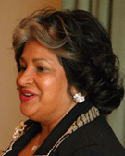 Carolyn W. Meyers was named president of Norfolk State University, the historically black educational institution in Virginia. She will take office in July. When introduced to the university community last week after her appointment was announced, Meyers admitted that she was so excited that "I've been squealing for two days now." Carolyn W. Meyers was named president of Norfolk State University, the historically black educational institution in Virginia. She will take office in July. When introduced to the university community last week after her appointment was announced, Meyers admitted that she was so excited that "I've been squealing for two days now."
Since 2001 Meyers has served as the provost and vice chancellor for academic affairs at North Carolina A&T State University in Greensboro.
Dr. Meyers is a native of the Norfolk area. She holds a bachelor's degree in mechanical engineering from Howard University. She earned a master's degree in mechanical engineering and a Ph.D. in chemical engineering from Georgia Tech.

North Carolina A&T Loses Two Top Administrators on the Same Day
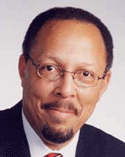 On the same day that Carolyn Meyers announced she was leaving her position as provost at North Carolina A&T State University to take the presidency of Norfolk State University, James C. Renick, chancellor of North Carolina A&T, also announced he was leaving the university after seven years at its helm. This coming June, Dr. Renick will become senior vice president for programs and research at the American Council on Education in Washington, D.C. On the same day that Carolyn Meyers announced she was leaving her position as provost at North Carolina A&T State University to take the presidency of Norfolk State University, James C. Renick, chancellor of North Carolina A&T, also announced he was leaving the university after seven years at its helm. This coming June, Dr. Renick will become senior vice president for programs and research at the American Council on Education in Washington, D.C.
Dr. Renick is a graduate of Central State University in Wilberforce, Ohio. He holds a master's of social work degree from the University of Kansas and a doctorate from Florida State University.

More Hot Water for Harvard President Lawrence Summers
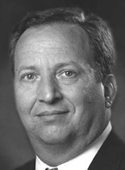
Lawrence H. Summers
Last March the faculty of the arts and sciences division at Harvard University approved by a vote of 218-185 a motion of no confidence in university president Lawrence Summers. At issue was Summers' statement that the lack of women faculty in the sciences and mathematics may be due to inherent genetic differences between the sexes.
Conrad Harper, a black man who was one of seven members of the board of the Harvard Corporation, resigned this past summer in protest of the board's decision to give Summers a salary increase. Harper was replaced by Patricia King, a black woman.
Now Summers is facing a second vote of no confidence as a result of the resignation of popular dean of faculty William Kirby. Many faculty members believe that Summers forced out Dean Kirby although a statement issued by the university said that it was a "mutual decision."
A second vote of no confidence by the Harvard faculty may increase pressure on the Harvard Corporation to seek to replace Summers as president of the university. Summers' entire tenure as Harvard president has been engulfed in controversy. And much of that controversy has revolved around his relationship with the black studies department. (See JBHE, Number 46, Winter 2004/2005, p. 20.)
One tenured professor at Harvard told JBHE recently, "It is readily apparent to those of us at Harvard that Larry Summers actually believes that women and minorities are less capable than white men." Because of Summers' history with blacks at Harvard, it seems clear that a change in leadership at the university would, in all likelihood, be good news for African Americans.

In Memoriam
Charles Warfield Clark (1917-2006)
Charles Warfield Clark, who was the personal physician of Duke Ellington and a member of the faculty at Howard University School of Medicine for more than half a century, died from a progressive nerve disorder late last month at his home in Washington, D.C. He was 88 years old.
Clark was a native of the District of Columbia and in 1935 graduated from the all-black Dunbar High School. He went on to earn a bachelor's degree at the University of Michigan before enrolling at the Howard University College of Medicine, earning his medical degree there in 1944.
Clark was a practicing urologist in Washington for more than 20 years. He began his teaching career as a clinical instructor at Howard in 1946. He was named a full professor at the medical school in 1960 and remained on the faculty until his retirement in 1997.
James E. Walker (1941-2006)
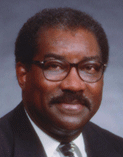 James E. Walker, who resigned as president of Southern Illinois University for health reasons this past September, has died from prostate cancer. He was 64 years old. James E. Walker, who resigned as president of Southern Illinois University for health reasons this past September, has died from prostate cancer. He was 64 years old.
Dr. Walker was a native of Alabama and completed his undergraduate work at Alabama State University, the historically black educational institution in Montgomery. He went on to earn a master's degree in special education from Atlanta University and a doctorate in education from Penn State.
Walker had served as president of Southern Illinois University since 2000. Previously, for nine years, he was the president of Middle Tennessee State University in Murfreesboro, Tennessee.

Grants
• The University of South Carolina received a $1 million grant from the Wachovia Foundation for a program to help recruit and retain black students at the Moore School of Business. The money will be used to fund summer camps for potential students, mentoring programs, and scholarships.

|
Racial Segregation in U.S. Dental Schools
 Overall there are 56 dental schools in the United States today. JBHE research has determined that in 2006 there are 1,108 black students studying dentistry at these institutions. Overall there are 56 dental schools in the United States today. JBHE research has determined that in 2006 there are 1,108 black students studying dentistry at these institutions.
Today 449 blacks, or 41 percent of all African-American dental school students, are enrolled at Howard University or Meharry Dental School, two historically black institutions. The remaining 659 black dental school students were spread throughout the other 54 predominantly white dental schools — an average of about 12 black students per school.
Among the primarily white dental schools, the University of North Carolina at Chapel Hill has the most black students. The 50 black students at the University of North Carolina dental school make up 15.7 percent of the student body.
In 2006, 27 of the nation's 54 predominantly white dental schools had an aggregate of fewer than 10 black students. The University of Washington, the University of Arizona, and the University of Minnesota had only one black student. There were no blacks among the 49 students at the National Naval Dental School.
Some of the dental schools with a small number of black students may rightfully claim that the lack of diversity at their institution is due to the fact that there are few blacks in their geographical area. But there appears to be no explanation as to why the dental schools at the University of Southern California, Louisiana State University, and the University of Oklahoma are less than 2 percent black.

Student Financial Aid Now Available to Former Drug Offenders
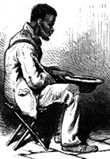 According to the Drug Policy Alliance, African Americans are about 13 percent of all illegal drug users in the United States. But blacks make up 38 percent of those arrested on drug-related charges and 59 percent of those convicted on drug charges. According to the Drug Policy Alliance, African Americans are about 13 percent of all illegal drug users in the United States. But blacks make up 38 percent of those arrested on drug-related charges and 59 percent of those convicted on drug charges.
Therefore, a new provision passed by Congress, which opens up student financial aid for those convicted of drug-related offenses, will have a disproportionate benefit to African Americans. It is estimated that 175,000 people of all races have been denied student financial aid since 2000 because of past drug convictions.
Under the new rules, people who were not enrolled in school at the time of their arrest and conviction can apply for federal financial aid. Students who are convicted while receiving federal aid will lose their eligibility for one year after the first offense but can reapply after the probationary period.
A new survey from the Coalition for Higher Education Reform reports that 24 states deny state financial aid for higher education to drug offenders. But 17 of these states merely follow federal guidelines. So, presumably, past drug offenders in these states will now be eligible for state aid as well as for federal money.

Washington State University Looks to Increase Black Enrollments
 Blacks are only 2.6 percent of the student body at Washington State University in Pullman, which is in the easternmost part of the state near its border with Idaho. But in view of the fact that blacks make up only 3.2 percent of the state's population and that almost all blacks in the state live in the western part near Seattle, Washington State's record in enrolling black students is not bad. Blacks are only 2.6 percent of the student body at Washington State University in Pullman, which is in the easternmost part of the state near its border with Idaho. But in view of the fact that blacks make up only 3.2 percent of the state's population and that almost all blacks in the state live in the western part near Seattle, Washington State's record in enrolling black students is not bad.
The University of Washington, in contrast, which is located in Seattle where the K-12 public school system is 22 percent black, has a student body that is only 2.9 percent black.
Washington State University has made a concerted effort to bring black students to the Pullman campus. It has hired an admissions officer whose sole responsibility is to recruit black students in the western part of the state. The university is employing black alumni and black faculty members in an effort to reach out to prospective students.
The university has also implemented financial aid, counseling, and other retention programs to help black students who enroll on the Pullman campus.

New Outreach Program Increases the Number of Black Students Accepted in Early Admissions Program at the University of Chicago
 In the JBHE annual survey of black freshmen this past fall, the University of Chicago ranked 26th among the nation's 30 highest-ranked universities in the percentage of black students in its freshman class. Furthermore, for the past decade, the University of Chicago has consistently ranked near the bottom in JBHE's annual surveys of black freshmen at the nation's strongest universities. In the JBHE annual survey of black freshmen this past fall, the University of Chicago ranked 26th among the nation's 30 highest-ranked universities in the percentage of black students in its freshman class. Furthermore, for the past decade, the University of Chicago has consistently ranked near the bottom in JBHE's annual surveys of black freshmen at the nation's strongest universities.
This year the University of Chicago focused on increasing the number of black and other minority applicants in the early admissions process. In November the university invited 120 prospective minority students to campus for an overnight program prior to the early application deadline. One third of these prospective black students were flown to Chicago at the university's expense.
As a result of these recruitment programs, early applications were up 12 percent from a year ago. Blacks were nearly 5 percent of all students admitted early to the university. While the percentage of blacks in the early admit pool remained the same from a year ago, the actual number of blacks admitted early increased by 15 percent.

Black Faculty at State-Run Colleges and Universities in South Carolina
 Blacks are nearly 30 percent of the total work force in the state of South Carolina. Yet a new report from the South Carolina Human Affairs Commission finds that blacks make up only 3.8 percent of the 1,492 full professors at state-operated colleges and universities in the state. There are 39 black men and 18 black women currently holding positions as full professors at state-operated colleges and universities. Blacks are nearly 30 percent of the total work force in the state of South Carolina. Yet a new report from the South Carolina Human Affairs Commission finds that blacks make up only 3.8 percent of the 1,492 full professors at state-operated colleges and universities in the state. There are 39 black men and 18 black women currently holding positions as full professors at state-operated colleges and universities.
It is important to note that one of these state-run educational institutions is South Carolina State University, a historically black institution in Orangeburg. Of the 39 full professors at all state-operated colleges and universities in South Carolina, 26 were employed at South Carolina State University.
There are 10 black full professors at the flagship campus of the University of South Carolina at Columbia. They make up 2.6 percent of all full professors at the university. There are 11 black associate professors, who make up 3.3 percent of all associate professors. In addition, there are 22 black assistant professors who make up 7.6 percent of all assistant professors. Blacks are nearly 15 percent of the undergraduate student body at the University of South Carolina.

  |
59% The college graduation rate of black women who entered college between 1995 and 1998 on basketball scholarships.
39% The college graduation rate of black men who entered college between 1995 and 1998 on basketball scholarships.
source: National Collegiate Athletic Association
|
Regents Strip Spending Authority of Texas Southern University President
 Priscilla Slade, president of Texas Southern University, was stripped of her authority to spend university funds by the institution's board of regents. An outside law firm was hired by the regents to investigate charges that President Slade misused tens of thousands of dollars in university funds to refurnish her home. Priscilla Slade, president of Texas Southern University, was stripped of her authority to spend university funds by the institution's board of regents. An outside law firm was hired by the regents to investigate charges that President Slade misused tens of thousands of dollars in university funds to refurnish her home.
After the controversy came to light, Slade also returned $138,000 in funds to the university for landscaping work that was done at her home. She had used a firm that routinely does landscaping work for the university. Slade contends that the firm mistakenly billed the university and the university paid the bill.

Oklahoma State University Honors Its First Black Student
 In 1949 state law in Oklahoma called for fines for university administrators who permitted black students to attend classes with whites. Faculty members were also subject to fines if they taught integrated classes. In 1949 state law in Oklahoma called for fines for university administrators who permitted black students to attend classes with whites. Faculty members were also subject to fines if they taught integrated classes.
Nevertheless, in the summer of 1949 Oklahoma State University in Stillwater permitted Nancy R. Davis, an African-American woman who was a graduate of historically black Langston University, to enroll in a master's degree program in home economics. In order to circumvent the state law, Davis was sequestered in the back of the room for two of her classes. In a third class, Davis was required to sit in the hallway and observe through a window. Within a week students in all three of Davis' classes demanded that she be given equal access to classroom instruction. The state chose not to interfere or assess any fines. Davis earned her master's degree in 1952 and went on to a 43-year career as a high school teacher.
Davis, a granddaughter of slaves, is now 80 years old. She was recently honored with a Nancy R. Davis Day as part of the university's Black History Month celebrations. A dormitory on the Stillwater campus and three scholarships have been named in her honor.

Affirmative Action in the U.K.
 The United Kingdom's Commission for Racial Equality is calling on Oxford, Cambridge, and the other 17 traditional universities in England to admit more black students. The commission is urging this group of universities to select black students ahead of white students with the same qualifications. A spokesman for the commission said that it is not seeking to impose racial quotas. Its recommendation is simply that "if you have a black student and a white student with equal qualifications at the front of the admissions queue, we want the university to take positive action to choose the black student first." The United Kingdom's Commission for Racial Equality is calling on Oxford, Cambridge, and the other 17 traditional universities in England to admit more black students. The commission is urging this group of universities to select black students ahead of white students with the same qualifications. A spokesman for the commission said that it is not seeking to impose racial quotas. Its recommendation is simply that "if you have a black student and a white student with equal qualifications at the front of the admissions queue, we want the university to take positive action to choose the black student first."

University of North Carolina Wilmington

Residence Coordinator,
Department of Housing and Residence Life
Provide direction and supervision to a specific residence hall or area, serving as the functional director for that area of campus. Also serve as a campus judicial officer.
Deadline to apply: March 24, 2006.
For a detailed job announcement and application instructions, please visit our website at http://consensus.uncw.edu.
UNCW is an affirmative action, equal opportunity employer.
Appointments
 • Ivory V. Nelson, president of Lincoln University in Pennsylvania, was named chair of the Presidents Council of the Division III colleges and universities that are members of the National Collegiate Athletics Association. • Ivory V. Nelson, president of Lincoln University in Pennsylvania, was named chair of the Presidents Council of the Division III colleges and universities that are members of the National Collegiate Athletics Association.
 • Colin Channer, author of several best-selling novels, is the newest member of the English department at Medgar Evers College in Brooklyn, New York. Born in Jamaica, Channer is a graduate of Hunter College. He will teach creative writing at Medgar Evers College. • Colin Channer, author of several best-selling novels, is the newest member of the English department at Medgar Evers College in Brooklyn, New York. Born in Jamaica, Channer is a graduate of Hunter College. He will teach creative writing at Medgar Evers College.
• Dwight Datcher was named director of athletics at Howard University in Washington, D.C. He was the associate director of athletics at Georgetown University and formerly served as athletics director at the University of the District of Columbia.
• McDonald Vick was named chief of police at the University of Kentucky. Vick was the chief of police at North Carolina Central University in Durham after serving for 18 years as a Durham police officer. While on the force, Vick earned a bachelor's and master's degrees in criminal justice at NCCU.

Awards
 • John A. Davis, associate professor of African-American studies at Loyola Marymount University in Los Angeles, California, received the Unsung Hero of the Year Award from KCET, the public television station in the city. Davis was honored for his work to establish the African-American studies department at the university and for mentoring minority students on the path to a career in higher education. • John A. Davis, associate professor of African-American studies at Loyola Marymount University in Los Angeles, California, received the Unsung Hero of the Year Award from KCET, the public television station in the city. Davis was honored for his work to establish the African-American studies department at the university and for mentoring minority students on the path to a career in higher education.
 • Frederick J. Streets, chaplain and senior pastor of Christ Church at Yale University, was given the African-American Trail Blazer Award by WTNH television in New Haven. The award is given to African Americans who "inspire others with their dedication to community service and social justice." The Reverend Streets is a graduate of Ottawa University and holds a master's degree in divinity from Yale. He also holds a master's degree and a doctorate in social work from Yeshiva University. • Frederick J. Streets, chaplain and senior pastor of Christ Church at Yale University, was given the African-American Trail Blazer Award by WTNH television in New Haven. The award is given to African Americans who "inspire others with their dedication to community service and social justice." The Reverend Streets is a graduate of Ottawa University and holds a master's degree in divinity from Yale. He also holds a master's degree and a doctorate in social work from Yeshiva University.

|



